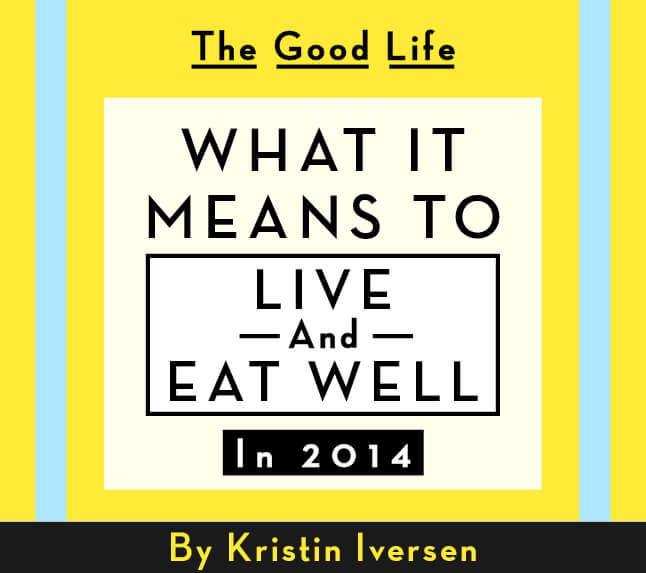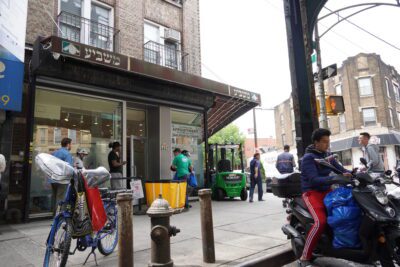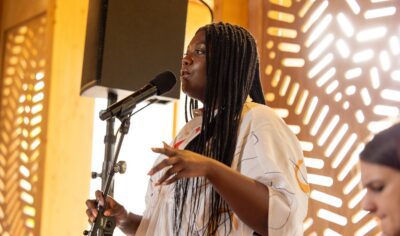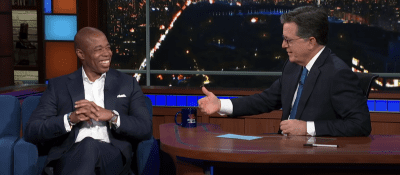The Good Life: What It Means to Live and Eat Well in 2014

I should probably say that my eating habits weren’t that bad. I almost never eat heavily processed food. I cook a lot. Long gone are the days when I subsisted on Top Ramen, bragging that it kept me healthy precisely because it was filled with preservatives. I’d boast that eating all those sodium bomb flavor packets meant that I fell outside of, no, rose above the food chain, like an untouchable, perfectly preserved noodle deity. I felt very clever saying those things, mostly because both sentiments were lifted (well, paraphrased) from a ZZ Packer short story I’d once read in the New Yorker. No one ever called me out on it. But so, yeah. No more Top Ramen. Instead I eat healthy, whole foods, just not at the right time of day. And so Stephanie helped me, and we composed a meticulous, but doable menu for the coming week. The biggest changes would be eating breakfast, and cutting back on carbs, and not drinking as much. I could do all of this. I knew I could. I thought about the time somebody asked me, “Do you ever say no to anything?” I mean, maybe I hadn’t before, but now? Now I would start saying no to almost everything. Just thinking about this and talking to Stephanie gave me this weird endorphin rush, the kind I get after working out, when I feel like I can conquer anything because I didn’t back down in the face of a challenge, i.e. managed to successfully clip my shoe into a SoulCycle bike. It was kind of amazing. I was going to buy sardines! And I was going to eat them.
I bought the sardines. I bought probiotic supplements. I bought enough avocados so that I could have at least one a day for many, many days. I bought raw almonds and butternut squash and brown rice and salmon fillets and green tea and quinoa. I was spending a lot of money, but I was trying to change my life, right? I had a plan and I was going to stick to it and I fully understood the value of a nutritionist because not only had Stephanie given me support and sound advice, but she would be there so that I could check in about what it was exactly that I was doing. I was on a diet. But I wasn’t alone, which I suddenly realized was an essential part to being healthy. Yes, suddenly. I know. I know. Even though I am now aware of how good hemp hearts are for me, I still have a lot to learn about healthy living.
Healthy living seems like an easy thing for those who can do it without thinking too much. It is easy to argue that eating well is such a privilege that is so specific to our society at this point in time that it is beyond frivolous and borders on narcissism to give up bread because you think it might not be good for you anymore. And, hey, as someone pointed out to me about my diet, “We’re all just going to die anyway.” I can’t argue with the fact that life heads in only one direction, and I am well aware of the troubling implications behind economically privileged people paying ten dollars for a green juice when some families of four have a daily food budget of that same amount, but when it comes to the accusation that dieting solely benefits the individual on the diet, I have to say that I’m fine with being called self-indulgent. I mean, maybe the energy that I’m using to pay more attention to what I’m putting in my body would be spent in a way that was instead productive to society, but probably that energy would just go toward watching an episode of Don’t Trust the B— in Apartment 23.
The morality of health and diet is, anyway, a difficult subject. It is difficult to defend eating quinoa, for example, when you learn how devastating the super-grain’s popularity has been to the Peruvian farming infrastructure. But then it’s also difficult to consume any animal products at all once you have some grasp of what goes on in factory farms. The list of all the things that we could be doing to make the world a better place is endless, and while it would be facile of me to shrug off global problems because I really, really want to hunt down a packet of chia seeds, it’s also a false dichotomy to claim that a person cannot have both global and personal concerns on an issue as complex as health and nutrition.
But besides all that, in the few weeks that I’ve been saying no to multi-beer afternoons and avoiding the bread basket, I’ve noticed some real changes. I have more energy in the morning. I don’t have crazy blood pressure spikes throughout the day. My skin is clearer than it’s ever been. I am pretty sure this is all due to the sardines. Beyond those Omega-3-rich fish, though, is the simple truth that as I become more and more conscious of what I’m nourishing myself with in terms of food, I’m also becoming more aware of how I’m nourishing myself in terms of a lot of things, whether its physical activity or books that I’m reading or art that I’m seeing or people with whom I’m speaking. The thing is, it might not be as interesting to read or write about abstaining and being good (there isn’t as much messiness and chaos involved), but it is definitely interesting to live this way, because—as I quickly came to realize—being good isn’t really about saying no anyway. It’s about saying yes to different things, things that are empirically better for you, things that make you happy and make you feel like you’re well. And there’s really no reason to be ashamed of saying that what you want is to be healthy, what you want is to feel good.
Follow Kristin Iversen on twitter @kmiversen
You might also like 



















